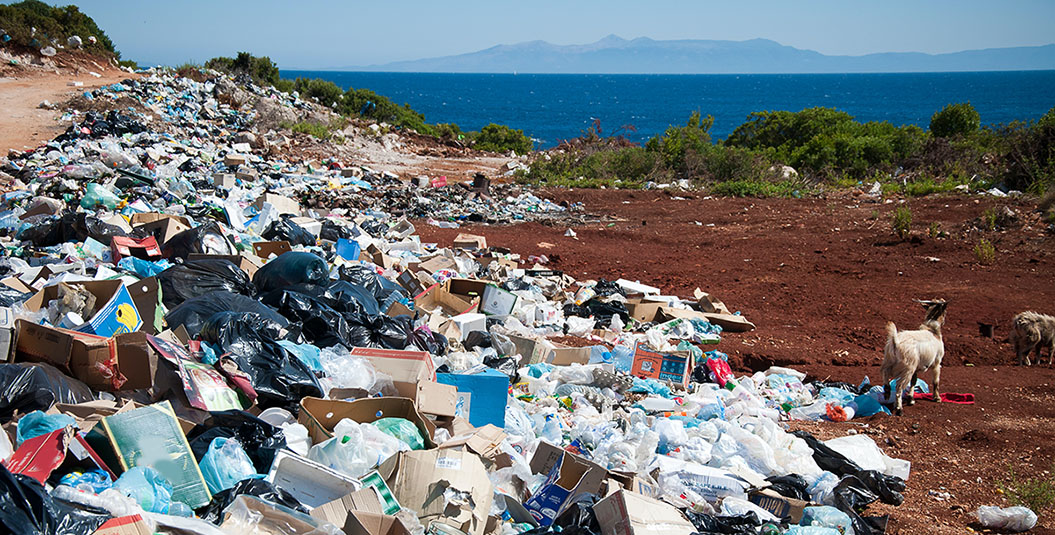International action on plastics is slow, but the opportunity is still there
In November 2023, United Nations delegates convened for a third round of negotiations to discuss the ‘zero draft’ of the UN Plastics Treaty – a crucial international initiative to put an end to plastic pollution. Unfortunately, little progress was made with only one year left until the end of the process, but there is also good news: all options remain on the table, with strong indications of how international standards will be integral to the success of the Plastics Treaty.

As an accredited observer, ECOS was at the UN Environment Programme (UNEP) headquarters in Nairobi where progress was challenging. Following the week-long negotiations, all options are still on the table, including upstream measures to curb global plastic production – but time is running out with only two rounds of negotiation remaining.
An international initiative with high ambition
The negotiations on a UN Plastics Treaty originated in March 2022, when 175 nations voted to create a legally binding international agreement to reduce ‘plastic pollution, including in the marine environment […] based on a comprehensive approach that addresses the full life cycle of plastic.’
Prepared ahead of this month’s Intergovernmental Negotiating Committee (INC) meeting in Nairobi, UNEP presented the ‘zero draft’ of the Plastics Treaty, which included a wide range of options, spanning from hard targets to softer declarations of intent. Amongst many other things, these options aim to reduce plastics production, address dangerous chemicals in plastics as well as existing plastic pollution, and curb the use of single-use plastic products.
Slow pace falls short of the target
Right from the beginning of the negotiations, a plastic production reduction target was a major point of contention. Delegates from the EU, a majority from South America, and a small number from Africa and Asia supported the idea – but Iran announced that a group of “like-minded countries” (including Russia, Saudi Arabia, Bahrain, China, and Cuba) strictly opposed a reduction target and claim that this is outside of the scope of the resolution.
The resolution mandating the UN Plastics Treaty calls for promoting “sustainable production and consumption of plastics.” Therefore, not only do we need standards for durable and reusable plastics that are more circular, but we need to produce and consume less plastic altogether – limiting the amount of new (“virgin”) plastic that is made.
As part of the Break Free From Plastic movement, we call for a reduction target for plastic production – an effective solution to reduce plastic pollution with wide-ranging, global impact.
A major roadblock of the continuing negotiations, however, is that rules of procedure and decision-making are still not adopted and decisions are still required by consensus – but no consensus was reached on deleting or adding any options to the ‘zero draft’.
The third round of negotiations ended with a mandate for UNEP to prepare a ‘revised zero draft’ by the end of 2023 that retains all existing options but also includes sub-options that reflect delegates’ statements provided during the INC3 meeting in Nairobi. A positive note to end on, but time is short with only two negotiating rounds remaining until the final treaty must be ready by the end of 2024.
How will standards help reduce plastic pollution?
We will see several important references to international standards in the revised zero draft as some delegates echoed our call for the development of new standards or to use existing international standards covering:
- Sustainable design of plastic products (durability, refillability, repairability, minimisation of releases).
- Recycled plastic, plastic alternatives, bio-based, bio-degradable, and compostable plastics.
- Fishing gear design.
- Standards to minimise microplastic emissions and effluents.
- Plastic waste standards for trade.
- Harmonised standards to research plastic pollution around the world.
It is crucial that delegates have a good understanding of international standards related to different aspects of the plastics value chain and the different sectors using plastics, as well as where standards are still lacking. ECOS wants to ensure that when standards are needed to implement provisions of the Treaty, they are supporting the ambition to end plastic pollution, not undermining the objectives, which is why ECOS will continue to push for their appropriate use.
The opportunity ahead
The negotiations will continue in Ottawa in April next year and pick up where they ended in Nairobi. The week’s discussions have at least provided a clear idea of different nations and alliances’ initial positions, and judging from their public statements, at least the US is slowly shifting in the right direction – in favour of binding provisions. The months ahead of the Ottawa meeting should be used to drum up more support for an ambitious Treaty text.
Time is short, and we hope to see real, tangible decisions made at the INC4 meeting in April that will definitively contribute to the goal of the resolution: the “sustainable production and consumption of plastics”. The Plastics Treaty is an unmissable opportunity to establish verifiable timebound global reduction targets, control measures, and means of implementation to reduce primary plastics and associated chemicals production. We need to see effective action on reducing the production levels of new plastics and increasing the uptake of reusable options, supported by standards.

 By
By 
